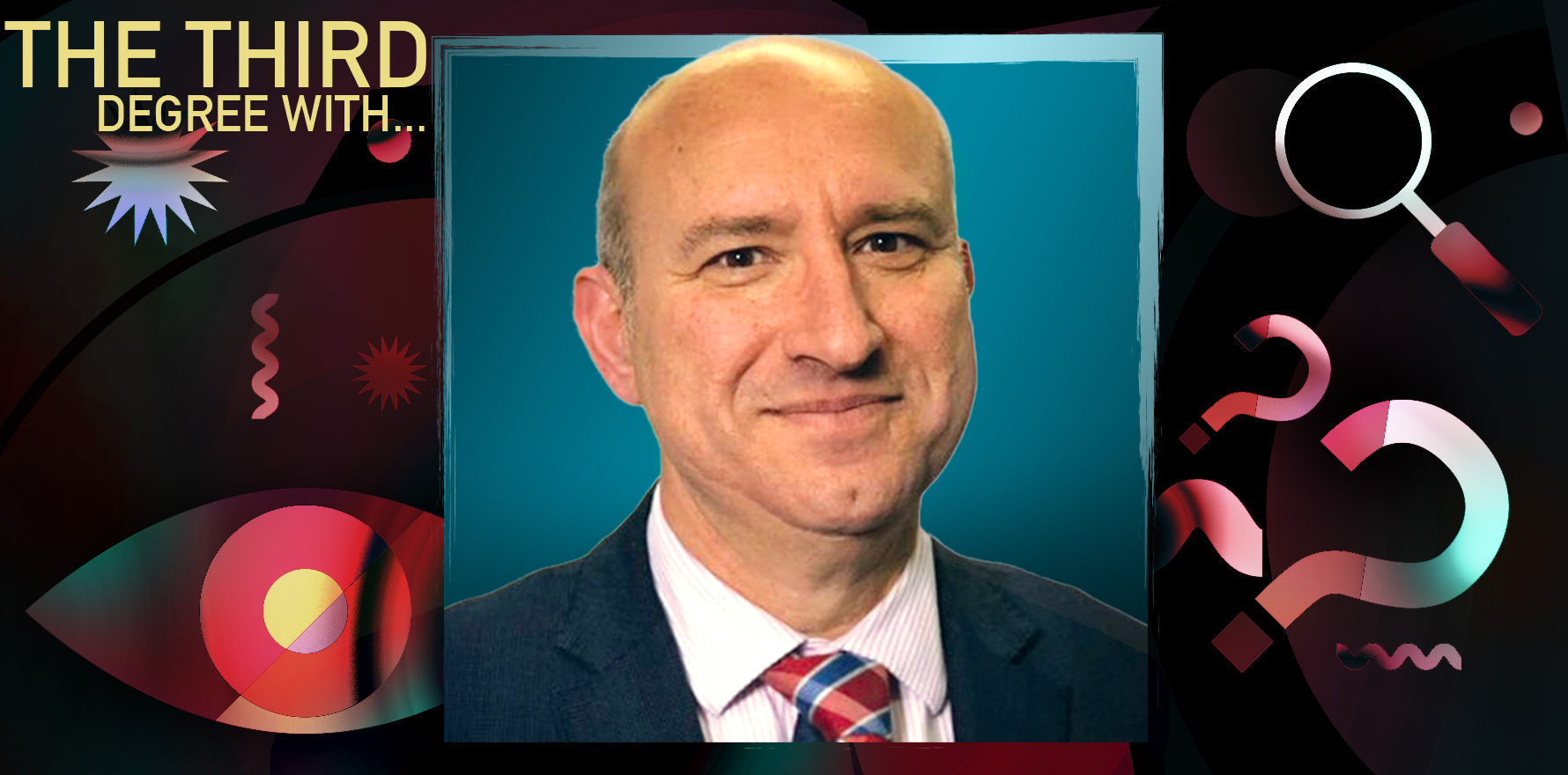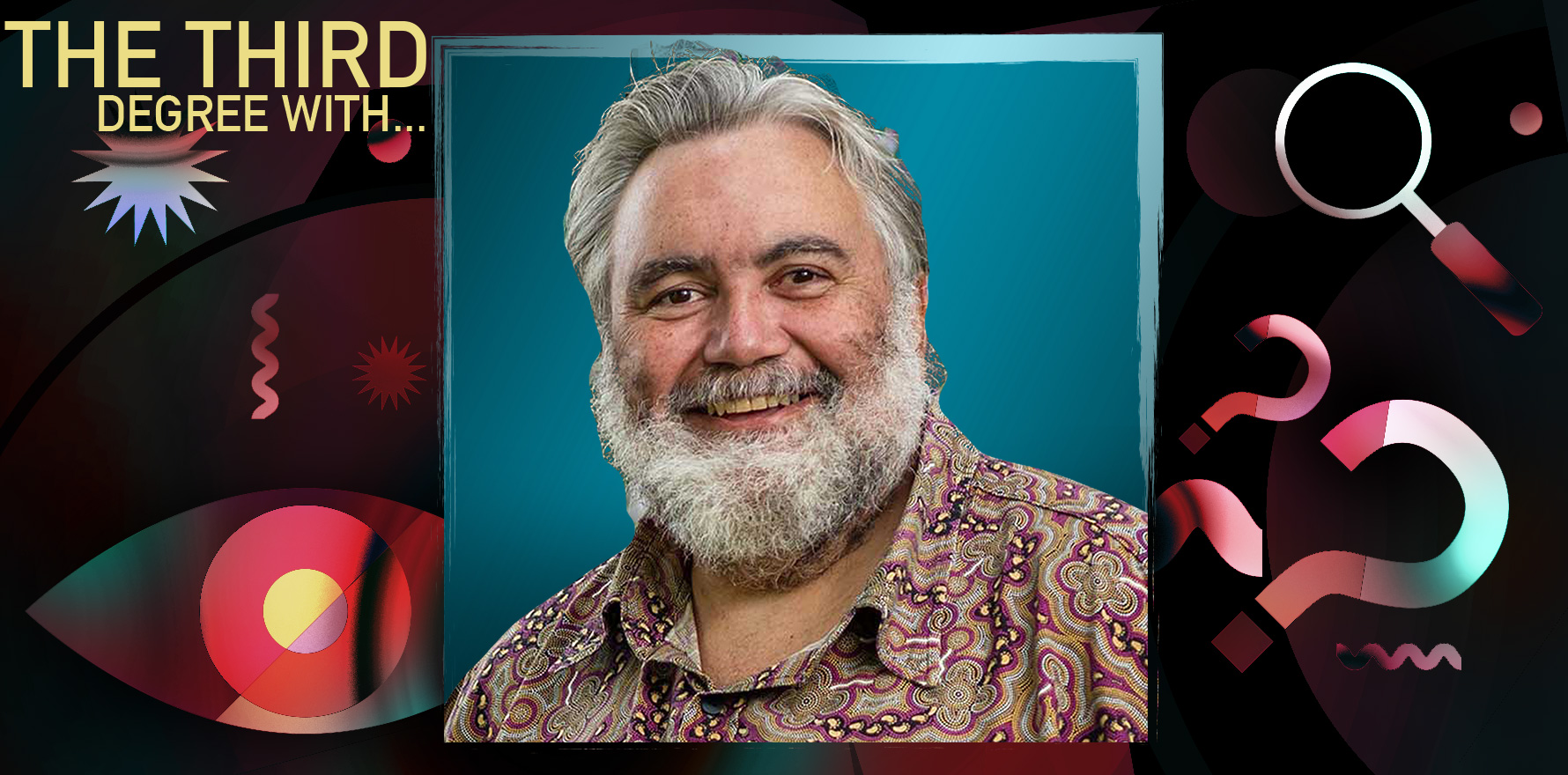Canberra GP Dr Antonio Di Dio was officially named as the new PSR director in July, after acting in the role for two years.
Most GPs fear the Professional Services Review – and once upon a time so did Dr Antonio Di Dio, the new director of the agency.
The function of the PSR is to investigate potential cases of inappropriate Medicare or PBS claims and recoup money where possible.
While it traditionally took no further action in about 30% of cases, there was a dramatic decline in the proportion of cases with this outcome from around 2017, when it dropped to less than 1%.
Dr Di Dio taking up the director role in an acting capacity in mid-2022 coincided with an increase in the proportion of cases with no further action; for the 2022-23 financial year, it reached a seven-year high of around 20%.
In July, the Canberra GP was permanently appointed to the job.
He sat down with The Medical Republic last week.
TMR: A lot of doctors probably don’t think of the PSR as their favourite regulatory body, but since you’ve been in charge there has been a big increase in cases with no further action.
Dr Di Dio: What comes through the door is 100% what Medicare refers to us.
We don’t initiate anything. Decisions about whether somebody gets a … no further action [outcome] are not based on a new attitude or a new approach or a new philosophy.
It’s just the same, consistent, approach.
But if there was a difference in what was coming in through the door for a period of time during 2022 and 2023, it was the tail end of our reviews of covid-related cases.
For example, quite a number of the 80/20 [breaches referred to us by Medicare] were very different to the 80/20 referrals that we’d had in previous years.
These were 80/20 referrals from people who saw an awful lot of people, but they were seeing them in a covid testing context and in the majority of [cases] … their conduct was appropriate.
They had taken a history, they had performed an assessment, they had a management plan and exceptional circumstances were found to exist for those people.
It wasn’t because of some dramatic change in in attitude or approach from the director – I mean, I like to think that I’m kind and so on, but there’s been no deep change to philosophy.
We either see inappropriate practice or we don’t.
But in making a decision about inappropriate practice, I certainly am very passionate about the well-being of the practitioner being absolutely paramount.
[I also want to ensure] that the practitioner, whatever profession they come from, is aware that they have multiple opportunities to address decision makers … and can take every possible opportunity to present their case.
You have a long history with organisations supporting practitioner mental health, like Drs4Drs. Can you give a rundown of your career so far?
I graduated in 1990 and I’ve been a GP for 30 years. I was my territory’s AMA president-elect and president for five years, and I am really interested in doctors’ health and wellbeing.
I started doing work in doctors’ wellbeing about 28 years ago.
I joined the Medical Benevolent Association board in 2000 and started doing Drs4Drs on-call phone calls in the late 90s, and I still do them. I talk to doctors every single day.
A significant number of my patients are doctors, and I have a lot of love and respect for them.
I hope that doesn’t make me in any way biased in conducting my job here [at the PSR], but at the same time I think it’s extremely helpful if you do this job, to have a feeling for the particular stresses and pressures that health practitioners are under.
We’re not just an agency that looks at doctors.
We look at many different practitioners, and I try as hard as possible – and I know that every member of the team here does as well – to look at things from the point of view of the practitioner who we are reviewing.
[We try to] bring a level of understanding to the human beings that come here.
What got you interested in taking up the PSR director role? Most doctors would probably run a mile.
I was a GP who was scared of the PSR.
Then I did my first committee in 2002 and I was just so impressed by how fair and reasonable and decent the process was. And so I kept doing them.
Then I became deputy director in 2012, which meant I got to chair committees, and that led to me doing part-time work for Medical Council of New South Wales and AHPRA.
I became very interested in regulation of medical practitioners, because I thought it was a good fit for my other passions, being the mental health and wellbeing of medical practitioners, and also the education and training of doctors.
I do a lot of teaching and mentoring of practitioners, and I think that regulation is simply an extension of the whole career process of medicine.
It’s also an extension of how we treat each other.
Regulation is an essential part of a stable functioning system.
If you’ve got more than 150,000 people billing Medicare every day, it stands to reason that a percentage of them are going to do it inappropriately.
Some of them will do it deliberately. Some of them will do it completely accidentally.
Some of them will have strange statistics in their billing, but which, when you look at it forensically, turns out to be completely reasonable.
I believe that regulation needs to be fair and appropriate and reasonable, and I believe very much that it needs to be done in a manner that is as gentle on the human being as possible while at the same time protecting the integrity of an amazing system that we have in Australia.
The interests of taxpayers, the interests of citizens, the interests of patients, the interests of practitioners – they all need to be respected as we conduct our regulatory functions.
Working in regulation is an unbelievable opportunity to do the exact opposite of what people say about regulators: that they’re terrible and they’re mean and they exist to make people unhappy.
Absolutely nothing could be further from the truth.
The reason that I feel safe on the roads and that I feel safe that my kids drive cars is because there are police out there stopping people from driving at 200 kilometres an hour.
Regulation is an opportunity to do good in the world, not to be bad or scary.
I know that’s simplistic and twee, but it is truly what I believe.
Related
For all its flaws, maybe we don’t talk enough about how good Medicare is?
When I was a kid, none of my family went to the doctor.
It was unaffordable in Italy [where I spent most of my childhood], and a whole lot of it was [still] unaffordable when we came back to Australia as well.
Medicare has flaws because it’s so enormous, but it’s also a magnificent system.
It delivers amazing value for money, and I think we should be proud of it.
I think we should also be proud of the health practitioners all around Australia who educate themselves about how to use Medicare appropriately, so many of whom are just so kind and generous and decent to their patients.
It’s a great system, and a great system involves constant evolution, learning improvements and regulation of elements within it to ensure that we all use the system fairly.
You touched on it earlier, but you said you used to be a GP who was scared of the PSR. What would you say to the GPs who are still scared of the PSR?
I would say to them that the number one protection that you have is practicing in a manner that is reasonable and appropriate, as well as educating yourself about billing correctly.
And if you ever hear from a regulator, it doesn’t matter whether it’s Medicare or AHPRA or anybody else, make sure that you contact your medical defence organisation.
You would never take out your own appendix.
Certainly, you wouldn’t do it by googling how to do it – you would talk to somebody who’s probably done it once or twice before.
Your medical defence organisation is your number one port of call if you get contacted by a regulator.
The other thing that I would say to people who are very anxious about a referral is to have a look at their own practice and talk to their colleagues, talk to their friends and look at the item descriptors.
Many of them are quite clear and didactic to make sure that you’re doing the right thing, the best way to allay anxiety of any kind in any context is with information.
One of the arguments for a body like the PSR is that someone has to be the regulator; it may as well be other doctors.
Unfortunately, when you appear before a regulator, our number one [consideration] is privacy.
People who have an incredibly positive experience here are not going to tell you about it, because they’re not going to tell you they went to the PSR, and I’m not going to tell you that they were at the PSR.
And a number of people who have a negative experience [with the PSR] may have had a negative experience for very, very good reasons.
Whether they had a negative experience or not, my absolute goal and the goal of every single person here is that they felt that they had multiple opportunities to be listened to.
Whether it’s before a report, after a report, before a committee or after a committee, there are multiple opportunities to be heard and to be listened to.
Even if the regulator says, ‘look, we don’t agree and we’ve made finding such and such’, we have listened to and engaged with what you’ve said.
I think if you can give people the respect of listening to the multiple opportunities they have to make submissions to a decision maker, that’s certainly the best that you can do.
We like to close with a wildcard question. What is the one meal you could eat three times a day for the rest of your life?
Oven dried tomato, basil and tuna on toast, with a bit of avocado.
If my mama was alive, it’d be very different and it’d have a lot more carbs.
This interview has been edited for length and clarity.





